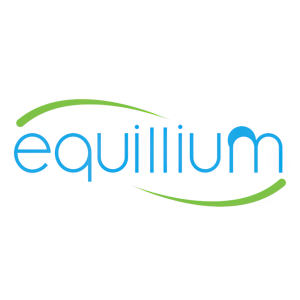Equillium Presents Interim Safety Data from First Cohort of Asthma Patients in Phase 1b EQUIP Study at the American College of Allergy, Asthma & Immunology Meeting
Itolizumab was well tolerated in patients with moderate to severe uncontrolled asthma
Presentation ID: P071
Category: Asthma, Other Lower Airway Disorders
Abstract Title: EQUIP Interim Results: A Phase 1b Study Evaluating Itolizumab in Subjects with Moderate-to-Severe Uncontrolled Asthma
In-Person Author Presentation Scheduled for: Monitor 9
Presentation:
“Our clinical data continue to support the versatility and therapeutic utility of itolizumab in a number of autoimmune and inflammatory disorders,” said
The EQUIP trial is evaluating ascending doses of itolizumab compared to placebo administered subcutaneously every two weeks (SC Q2W) up to Day 57. The poster highlighted blinded data from nine patients in Cohort 1 (itolizumab 0.8 mg/kg or placebo) with a baseline mean ACQ-6 (asthma control questionnaire) in the cohort of 2.5, which decreased to 1.5 at Day 29, and maintained this level 30 days after the last dose of itolizumab at Day 85. Mean FEV-1 (forced expiratory volume - a measure of airway obstruction) was 2.1 on Day 1, which increased to 2.4 at Day 29 and maintained at Day 85. Interim pharmacodynamic findings indicated a reduction of cell surface expression of CD6 compared to placebo. Itolizumab was well tolerated with most adverse events characterized as mild to moderate in severity, consisting primarily of injection site reactions and transient lymphopenia events consistent with prior experience of itolizumab administration.
To view the poster presentation, visit the Publications & Presentations page of Equillium’s website: https://www.equilliumbio.com/technology/publications-presentations/default.aspx.
About Uncontrolled Asthma
Asthma is a complex and highly prevalent inflammatory lung disease, characterized by reversible airway obstruction and chronic inflammation that, in severe cases, can significantly impact patient quality of life. Asthma is estimated to affect approximately 26 million people in
About EQUIP
The EQUIP study is a Phase 1b randomized, double-blind, placebo-controlled study in patients with uncontrolled moderate to severe asthma. In this 12-week multiple ascending dose study, patients receive either itolizumab or placebo administered subcutaneously every two weeks, for a total of 5 doses, with 4 weeks of follow-up. The primary endpoints of the study are safety and tolerability of itolizumab in patients with uncontrolled moderate to severe asthma. The secondary endpoints include characterizing pharmacokinetics (PK), pharmacodynamics (PD), PK/PD relationship and clinical activity of itolizumab.
About Itolizumab
Itolizumab is a clinical-stage, first-in-class anti-CD6 monoclonal antibody that selectively targets the CD6-ALCAM signaling pathway to selectively downregulate pathogenic T effector cells while preserving T regulatory cells critical for maintaining a balanced immune response. This pathway plays a central role in modulating the activity and trafficking of T cells that drive a number of immuno-inflammatory diseases.
About
For more information, visit www.equilliumbio.com.
Forward Looking Statements
Statements contained in this press release regarding matters that are not historical facts are "forward-looking statements" within the meaning of the Private Securities Litigation Reform Act of 1995. Forward-looking statements may be identified by the use of words such as "anticipate", "believe", “could”, “continue”, "expect", "estimate", “may”, "plan", "outlook", “future” and "project" and other similar expressions that predict or indicate future events or trends or that are not statements of historical matters. Because such statements are subject to risks and uncertainties, many of which are outside of the Company’s control, actual results may differ materially from those expressed or implied by such forward-looking statements. Such statements include, but are not limited to statements regarding the potential benefit of treating patients with aGVHD, uncontrolled asthma, or lupus/lupus nephritis with itolizumab, Equillium’s plans and expected timing for developing itolizumab including the expected timing of initiating, completing and announcing further results from the EQUATE, EQUIP, and EQUALISE studies, the potential for any of Equillium’s ongoing or planned clinical studies to show safety or efficacy, statements regarding the impact of new leadership team members, Equillium’s anticipated timing of regulatory review and feedback, Equillium’s cash runway, and Equillium’s plans and expected timing for developing itolizumab and potential benefits of itolizumab. Risks that contribute to the uncertain nature of the forward-looking statements include: uncertainties related to the abilities of the leadership team to perform as expected; Equillium’s ability to execute its plans and strategies; risks related to performing clinical studies; the risk that interim results of a clinical study do not necessarily predict final results and that one or more of the clinical outcomes may materially change as patient enrollment continues, following more comprehensive reviews of the data, and as more patient data become available; potential delays in the commencement, enrollment and completion of clinical studies and the reporting of data therefrom; the risk that studies will not be completed as planned; Equillium’s plans and product development, including the initiation and completion of clinical studies and the reporting of data therefrom; whether the results from clinical studies will validate and support the safety and efficacy of itolizumab; changes in the competitive landscape; uncertainties related to Equillium’s capital requirements; and having to use cash in ways or on timing other than expected and the impact of market volatility on cash reserves. These and other risks and uncertainties are described more fully under the caption "Risk Factors" and elsewhere in
View source version on businesswire.com: https://www.businesswire.com/news/home/20211105005193/en/
Investor Contact
Vice President, Investor Relations & Corporate Communications
619-302-4431
ir@equilliumbio.com
Media Contacts
Aljanae Reynolds
areynolds@wheelhouselsa.com
Source:







